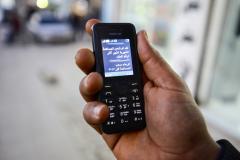UNHCR’s Refugee Zakat Fund Recognized As Best Global Zakat Distribution Platform 2019 By Global Islamic Finance Awards
UNHCR’s pioneering Refugee Zakat Fund has been recognised as the ‘Best Global Zakat Distribution Platform 2019’ at the Global Islamic Finance Awards (GIFA), held in Cape Town, South Africa last night (Sep. 16).
With Islamic finance becoming a more prominent and sophisticated part of the global economy, UNHCR, the United Nations refugee agency, evolved its existing Zakat program to a new structure, the Refugee Zakat Fund, in April this year. The Fund allows Muslims, wherever they live, to fulfil their Zakat obligations easily, efficiently, and with complete peace of mind.
Commenting on the win, Houssam Chahin, UNHCR’s Head of Private Sector Partnerships in the Middle East and North Africa (MENA) region, said: “We are delighted to be recognised by the GIFA Awards Committee which reaffirms the Fund’s position as a trusted, efficient, and pioneering structure that harnesses the power of Zakat to positively impact the world. The award further builds on the credibility of the platform in ensuring transparency, from the digital collection to distribution of Zakat funds, in the global Islamic finance sphere.”
The awards, now in their ninth year, are among the most coveted market-led awards in Islamic banking and finance in the world.
UNHCR is the first UN agency to provide a transparent route for Muslims to fulfil their Zakat obligations in support of refugees, being a pioneer in using technology, both for collection and distribution purposes. Digital payments are used for the efficient collection of Zakat obligations, while ATMs, IRIS scan, mobile wallets, and other technologies are used for the distribution of Zakat, in cash, to vetted refugees and IDPs.
So far in 2019, US$38.1 million has been raised through the Refugee Zakat Fund thanks to generous contributions from donors across the globe. Donations received through the Fund have so far helped over 111,209 of the most vulnerable refugee and IDP families (approximately 648,476 individuals) in Yemen, Lebanon, Iraq, Egypt, Jordan, Mauritania and Bangladesh.










 Email: info@cyber-gear.com
Email: info@cyber-gear.com